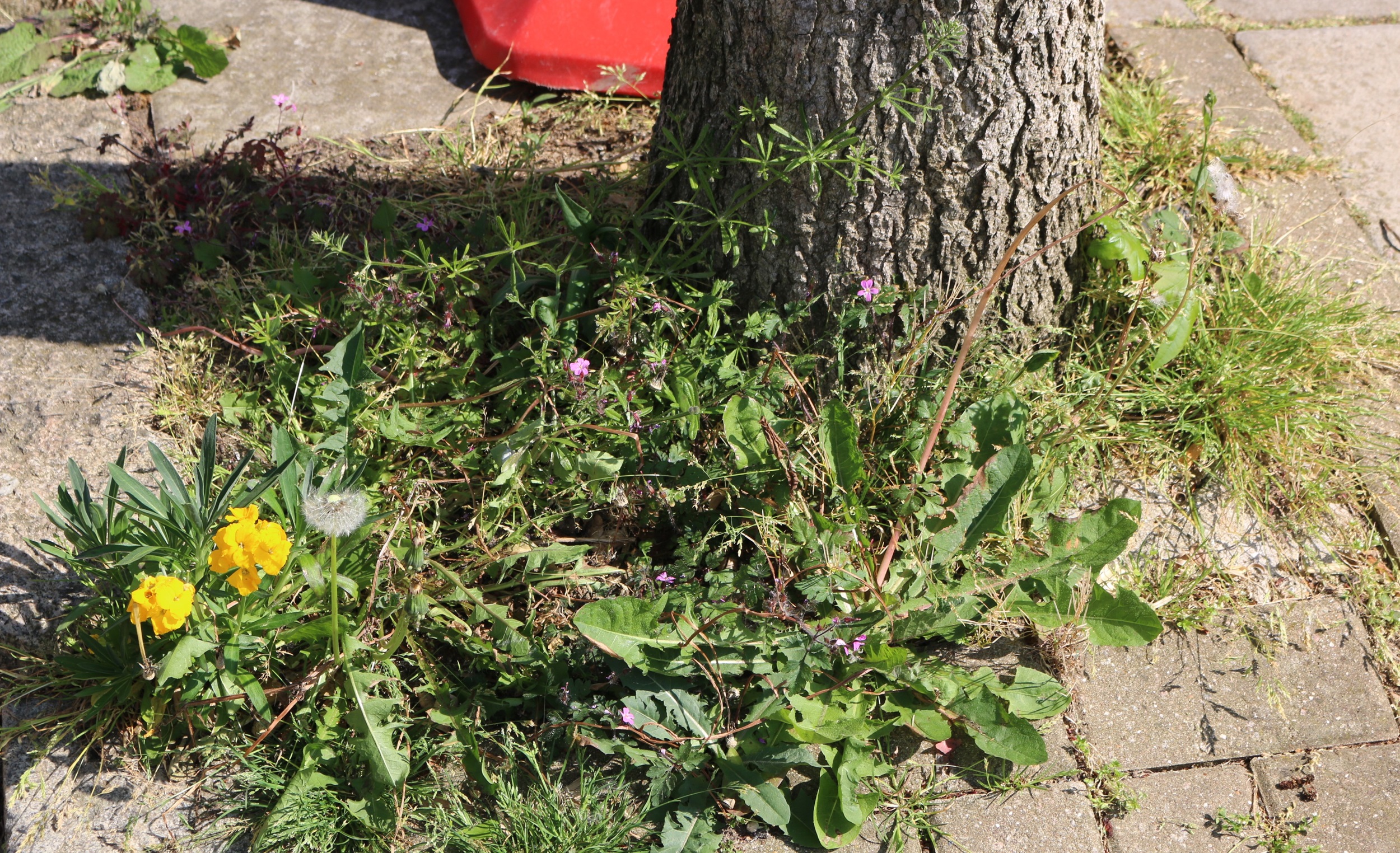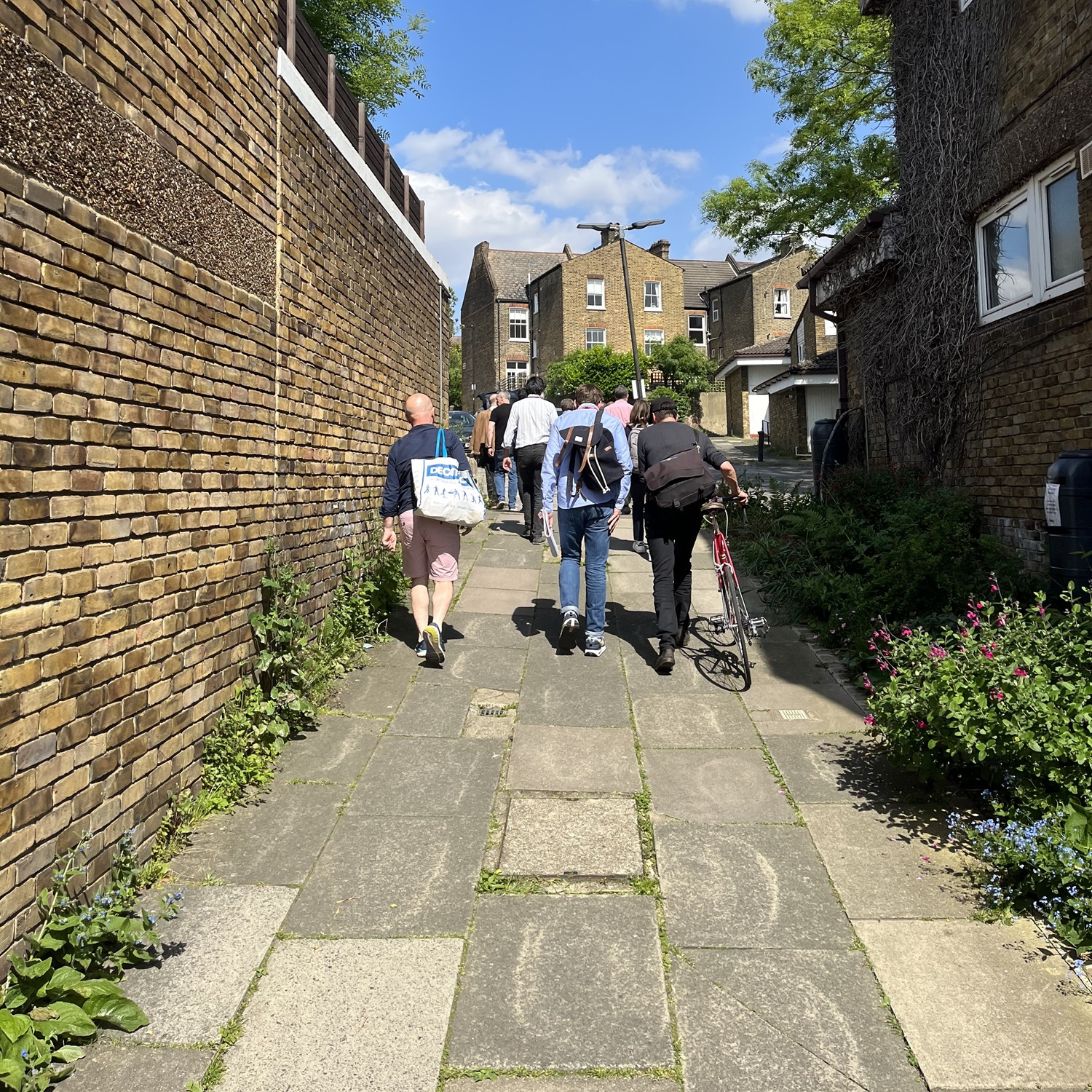Case Study: Pesticide-Free Lambeth
Lambeth Council’s weeding strategy has transformed over the last few years. Where once its sole concern was to remove all weeds as efficiently as possible, it now strikes a balance between two equally important goals: maintaining public areas that are free from trip hazards and obstructions, and nurturing biodiversity. The use of herbicides has now been completely phased out, thanks in part to the Community Weeding Scheme.
Lambeth previously used glyphosate to treat weed growth across its 80 parks and open spaces, 100 housing estates, and 580km of pavements. Incredible Edible Lambeth (IEL) approached the council in 2019 with concerns about this use, asking for an end. As a compromise, the council offered to stop using glyphosate on its pavements in October 2021 when a new street cleansing contract was scheduled to take effect. Until then, the council agreed to stop spraying parks and housing estates, and reduced the number of sprays per year on pavements from three to two.
The council also set up a scheme where residents could opt their street out of spraying by volunteering to remove all the weeds themselves. Through repeated advertisement for the scheme via articles in Lambeth Talk, the council’s quarterly free newspaper, and through the Neighbourhood Champions initiative and IEL’s network, the number of streets involved went from an initial 37 to 130. These numbers encouraged the council to cancel the second scheduled application of 2021. May 2021 was the last scheduled spray in the borough.

A tree pit in Lambeth showing natural growth of vegetation – providing habitat and food sources for wildlife.
Rather than end the scheme there, the council has decided to focus on nurturing biodiversity. Residents are now only required to remove those plants that might cause a trip hazard or obstruction, or those that could potentially damage infrastructure. Volunteers are given a handbook to help them identify the wild plants that they might see growing (a local botanist counted 70 in one street), and posters are attached with information on the scheme to explain why people might be seeing more wild plants than usual.
The Community Weeding Scheme offers a way for residents to be able to encourage more sustained growth over the spring and summer, allowing plants to flower and sustain local biodiversity. All participating streets are then given a deep clean by the street cleansing team over the autumn / winter season. For the streets outside the scheme, a new dedicated ‘deep-cleaning’ resource will sweep detritus, backlines, and channels, clearing wild plant growth as they go. It will visit each road in the borough every six weeks, and estates every four weeks. This will limit the potential for wild plants to grow for any length of time except in tree pits.
Residents commented on how they had found participating in the scheme to be an unexpectedly positive experience. The project is also closely aligned with other Lambeth initiatives, such as its new Kerbside Strategy, making sustainable use of areas dominated by parked cars, and the Bee Roads project, transforming amenity grass verges into wildflower meadows.

London Councillors explore the pesticide-free streets of Lambeth. Credit PAN UK
“This is by far the most community-spirited and neighbourly thing I’ve experienced in 20 years of living in London”
A resident community weeding scheme volunteer
